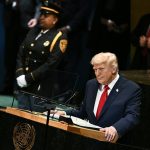
Nayara Energy CEO Resigns Amid EU Sanctions
Alessandro des Dorides, the Chief Executive Officer of Nayara Energy, has resigned following the European Union’s sanctions that directly impact the company’s operations. Nayara Energy, a major Indian private refiner partly owned by Russia’s Rosneft, operates the Vadinar refinery in Gujarat, which processes 400,000 barrels of crude oil per day. The EU imposed restrictions on the refinery because it uses Russian-origin crude oil to produce fuels that were being exported to Europe.
New Leadership Appointed
Following the resignation, Sergey Denisov has been appointed as the new CEO. Denisov has been with Nayara Energy since 2017 and has previously served as Chief Development Officer. He was responsible for several key projects, including a ₹70,000 crore expansion plan aimed at boosting the company’s presence in petrochemicals and domestic fuel distribution.
Sanctions Disrupt Operations
The sanctions have already caused operational disruptions. Several ships have either diverted their routes or cancelled loading plans at the Vadinar terminal. The EU’s policy blocks the sale of refined fuels made from Russian crude, even when processed in a third country. This has forced shippers and traders to distance themselves from Nayara’s exports, leading to logistical and financial complications.
Company and Government Response
Nayara Energy called the sanctions unfair and unilateral. The company has stated it is exploring legal remedies to protect its interests. The Indian government has also opposed the sanctions, describing them as unjustified and potentially harmful to India’s energy security.
Industry-Wide Implications
The sanctions have broader consequences for India’s refining sector. Other private refiners using discounted Russian crude, including major players, are reassessing their export strategies. Many are expected to route shipments through intermediaries or focus more on domestic sales to manage compliance risks and minimize losses.
With Denisov now at the helm, Nayara Energy will need to manage both international restrictions and domestic energy demands, while pushing ahead with long-term plans in a challenging global environment.


















